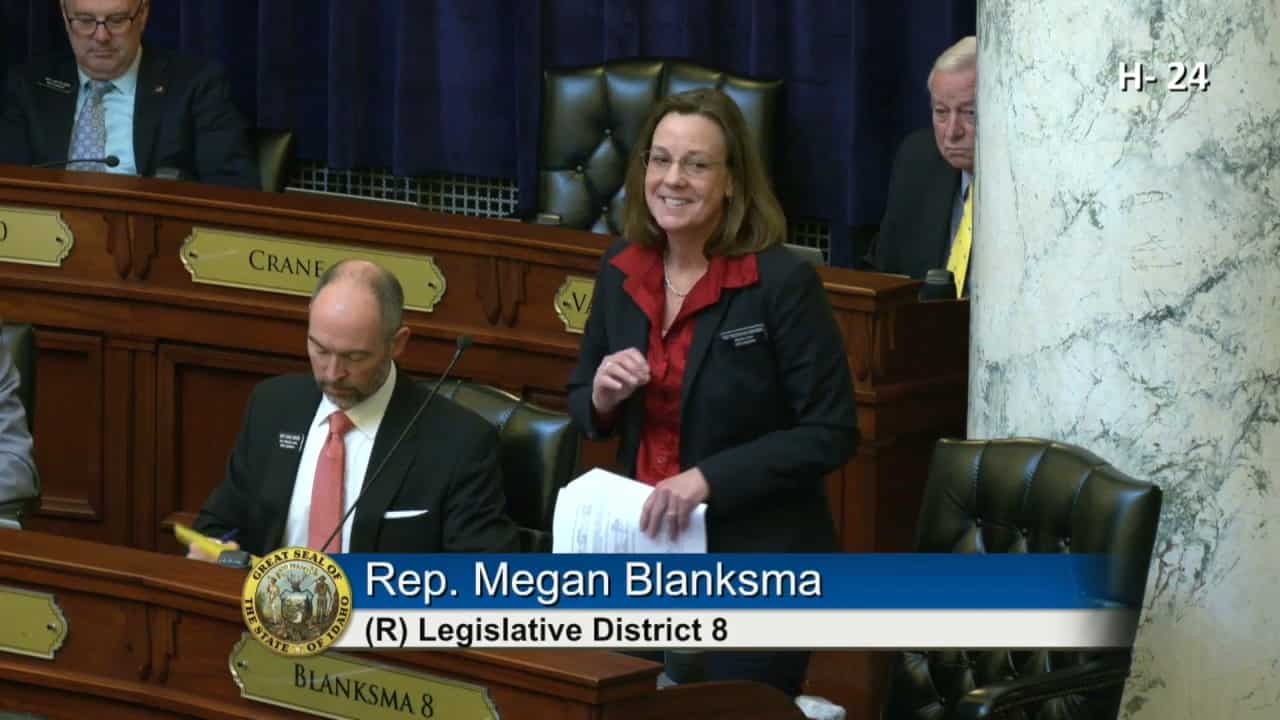


House Bill 24, the Idaho Launch bill, passed the House yesterday afternoon by a razor-thin margin after more than an hour of spirited debate. Rep. Megan Blanksma is the House sponsor, but Governor Little has been the driving force behind this bill, which would expand the existing Idaho Launch Grant program, providing $8,500 per high school graduate ($102 million overall) for technical education and workforce training.
Idaho Freedom Foundation strongly opposes this bill because it significantly expands a government program, subsidizes corporate training programs, and distributes money to certain industries as determined by the unelected Workforce Development Council.
Opponents of the bill made many excellent points during the House debate. Rep. David Cannon stated the obvious, that this bill was “a step away from free markets and a step in the direction of a command economy.” Rather than letting the market decide which careers are “in demand,” this bill allows the Workforce Development Council to use grants to push students toward certain areas.
Rep. Elaine Price called out the hubris of government deciding which jobs are “essential” and which are not. This sort of thing hearkens back to the COVID lockdowns, when Governor Brad Little shut down so-called “non-essential” businesses.
This bill would send tax dollars to trade schools, colleges, and corporations, ostensibly to train up a generation of Idaho tech workers. In a statement after the vote, Gov. Little lauded the bill, saying that the grant will help students looking for career opportunities as well as employers who need trained workers. Yet the governor forgot one important group. As Rep. Mike Kingsley asked, “Who is looking out for the taxpayer?”
Rep. Heather Scott asked a great question yesterday afternoon. With the Workforce Development Council made up of business leaders, what is to stop them from simply designating their own industries as “essential” and “in demand”? From that perspective, this bill amounts to a giveaway of tax dollars to private interests.
Rep. Vito Barbieri correctly pointed out that H.24 simply subsidizes corporations. “If we are going to help these students,” he asked, “why do we have to have a central planner?”
Rep. Jason Monks brought up basic economics, explaining that if students are allocated a “free” $8,500 from the government, then the price of workforce development is surely going to go up by a commensurate amount. Monks also pointed out that many of these corporations are already paying for their own workforce development, so once again this bill is a thinly-disguised handout.
Rep. Brent Crane gave what should have been the final nail in this bill’s coffin when he explained the nature of government programs: “Once we start it, we’re never going back.”
Unfortunately, enough representatives were persuaded, either by the governor’s office or IACI, that this new spending program would be a good idea. It is telling that every Democrat joined with a minority of House Republicans to pass this bill. Check the board below to see how your legislator voted:
Congratulations to those brave representatives who defied the governor and the special interests pushing hard for this bill, especially the freshmen who must be feeling enormous pressure. Now it moves to the Senate, where it might have a tougher time. The arguments made against the bill yesterday afternoon will echo as senators begin their own debates.
We call on the Senate to do what is right, to look out for the taxpayer rather than the special interests, and defeat this bad bill.


